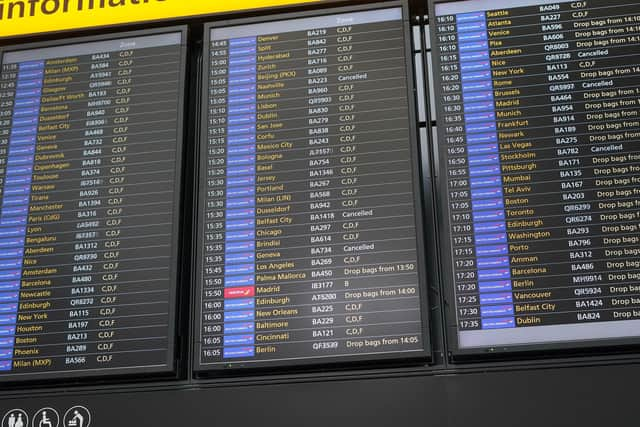Air traffic control: Airlines demand compensation reform following air traffic control chaos
and live on Freeview channel 276
Airlines are demanding compensation reform and want National Air Traffic Control Services (NATS) to shoulder the cost of this week’s airport chaos. Issues began on Monday (August 28) at the headquarters of NATS when its flight planning system failed.
The outage has now been resolved but caused a knock-on impact for several days, with hundreds of passengers left stranded in airports. Industry body Iata projected a £100m loss in revenue for airlines as customers reclaim the costs for food, accommodation and alternative travel.
Advertisement
Hide AdAdvertisement
Hide AdThey are urging the Civil Aviation Authority (CAA) to review the compensation system and make the National Air Traffic Services (Nats) contribute to the cost.
Willie Walsh, the director general of Iata, told the BBC: “It’s very unfair because the air traffic control system, which was at the heart of this failure, doesn’t pay a single penny.”


He added the UK should “look at the way passenger compensation is dealt with to ensure that the people who are responsible for the delays and cancellations ultimately bear the costs”
The UK’s air traffic control boss, Martin Rolfe, said the glitch was caused by “dodgy” flight data but has been fixed and will not occur in the future.
Comment Guidelines
National World encourages reader discussion on our stories. User feedback, insights and back-and-forth exchanges add a rich layer of context to reporting. Please review our Community Guidelines before commenting.
